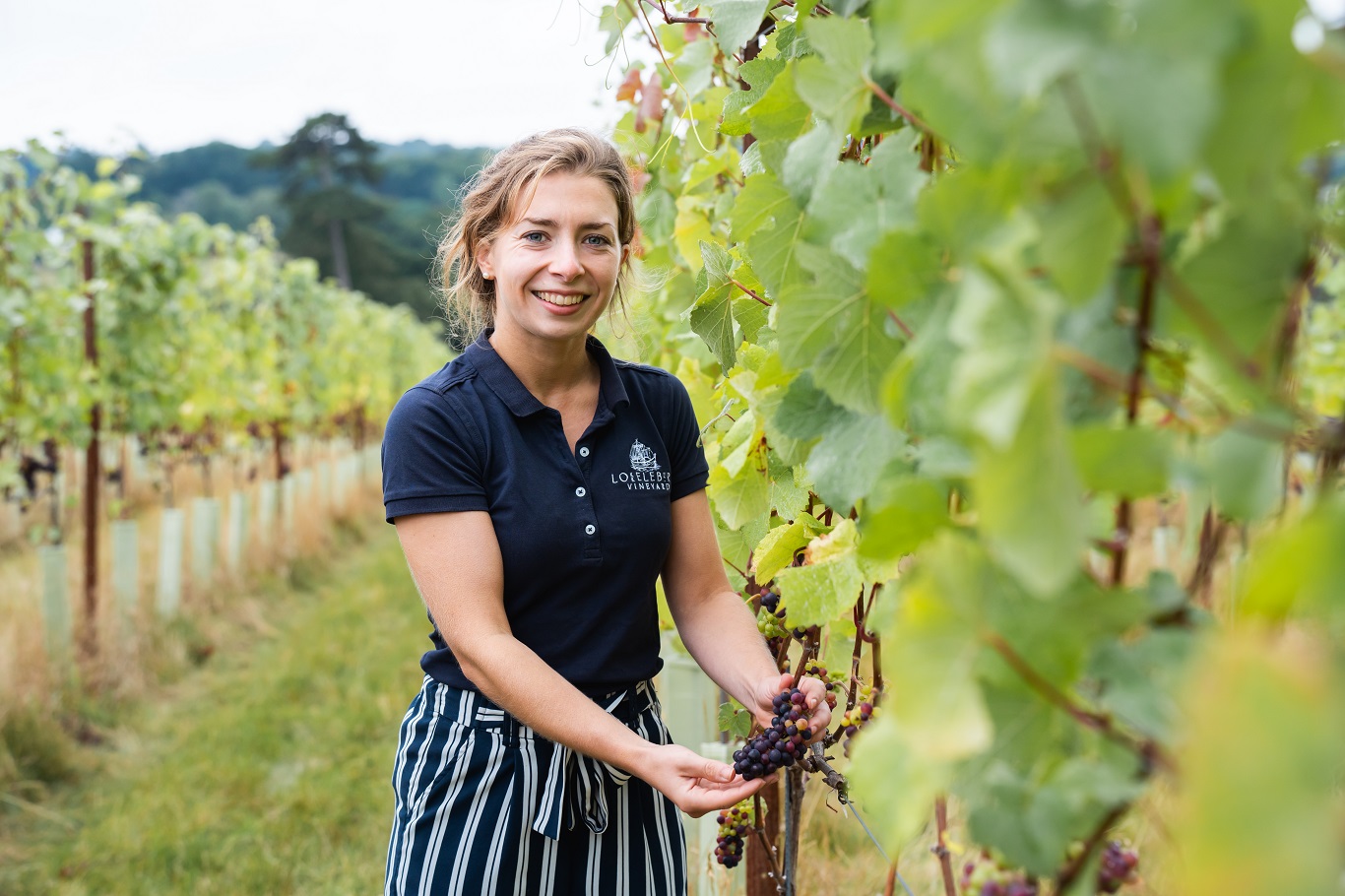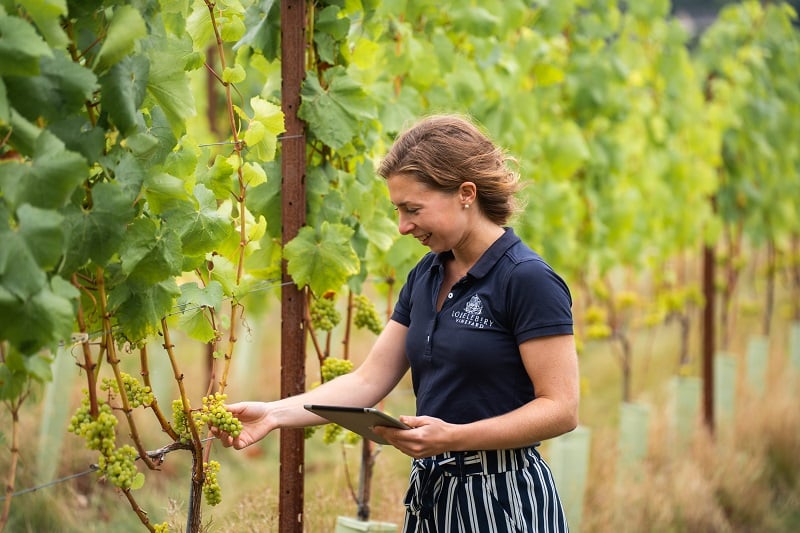Lockley Farm Vineyard diversification

Lockley Farm’s Vineyard Dream: From Concept to Reality
Lockley Farm, a traditional cereal farm with a rich history, has always been a place of ambition and dreams for the Buisman family. The idea of planting a vineyard was a long-held dream that finally became a reality in 2022, thanks to a combination of favourable climate changes and the return of eldest daughter Hannah during the Covid-19 pandemic.
The Birth of a Vineyard
The desire to diversify was partly driven by the need for Hannah to find her niche within the family business. "We knew we wanted to be growers, but we wanted to make our prices rather than take them," Hannah explains. "This was a way to have a crop where we could set the price and something we were genuinely interested in, as opposed to something like a solar park or other diversification."
The decision to plant vines was made in 2021 after extensive research and consultation with vineyard specialists, Vinescapes. They conducted various analyses, from topographical to frost monitoring, to identify the most suitable area on the farm for the vineyard. The chosen 15-acre plot was prepared over nine months and planted with vines in May 2022, and so started Lokkelebery Vineyard.
Choosing the right grape varieties was crucial. The family decided to focus on producing mainly still rosé and sparkling wines, selecting Pinot Noir, Pinot Meunier, Chardonnay, and Pinot Noir Précoce varieties.
The Work Begins
Once the vines were planted, the family faced the labour-intensive task of nurturing them. "We were out on our hands and knees, pulling excess shoots and pruning the newly established vines," recalls Hannah. The vines, which take two to three years to establish, surprisingly produced fruit in their second year, promising an early, albeit small, harvest.
The vineyard aims to create a premium, unique product rather than supplying highly commercial channels. "We're listening to the environment," says Hannah. "If it says we can produce a sparkling but not a still wine, then so be it. We're not going to force it."
Juggling Farming and Viticulture
Lockley Farm isn't just about grapes and vines. The family also manages traditional cereal crops, growing wheat for biscuits, barley for beer, and oats for cereal. Additionally, they oversee several converted farm buildings now serving as long-term rentals as well as retired horse yard.
Innovative Income Streams
Although the first bottle of wine won’t be bottled until the end of 2025, Hannah has found innovative ways to generate income from the vineyard. Small vineyard tours and large-scale events, like the 'VineyART' event connecting local artists, have been successful. These activities not only drum up interest in the vineyard but also showcase the farm’s other operations, connecting locals with their food producers.
Local volunteers help maintain the vineyard, reducing labour costs and creating a great community at the farm. "A lot of farmers ask how we get people to do manual labour. Perhaps it's because we're a novelty or it’s something that would otherwise be very off-limits," Hannah speculates. “Most volunteers find the work satisfying and therapeutic in our experience, that is the power of the great outdoors.” Although there are economic benefits to utilising a voluntary workforce, the family are moved to a hybrid labour model in 2024 balancing volunteers with paid workers due to the sheer volume of work. At the heart of everything in the vineyard is care for those tending to the vines, cake and refreshments are never far away for any team member working in the vineyard.

Securing Funding and Support
Establishing the vineyard has required significant investment. Hannah has been proactive in securing funding, obtaining support from The Farmers Club Charitable Trust and a scholarship from the Henry Plumb Foundation, as well as training support from Bedfordshire Young Farmers. These networks have been invaluable in building the future brand of Lockley Farm.
Planning for the Future
Succession planning has been a crucial aspect of the vineyard project. The family has taken a forward-thinking approach, considering tax implications at every stage of running the business. “Our local NFU Mutual Agent Leonie King has been incredible in supporting us especially since setting up the vineyards which brought in a whole new area of insurance considerations such as loss of income, and liability for the tours. They’ve helped us to understand the risks and make sure we’re covered,” says Hannah.
Advice for Aspiring Viticulturists
Hannah advises those interested in viticulture to be prepared for the investment in both time and money. "Speak to a viticulture consultant to find out if it's even feasible and run through the financials. Make a really educated decision. You've got to be passionate about it and love what you're doing," she says.
The Future of Lockley Farm
The vision for Lockley Farm’s vineyard, Lokkelebery Vineyard, is to become a hub for fine wine, food, the arts, and wellness. "We want to explore those areas. From yoga in the vineyard to developing a wine club, the sky is the limit," Hannah enthuses. Despite their ambitious plans, the family remains committed to their core message of supporting local farmers and Hannah looks forward to continuing to maintain and develop the arable side of the business long into the future.
Lockley Farm’s journey into viticulture is a testament to the power of dreams, hard work, and innovative thinking. The Buisman family’s dedication to their farm and their vision for the future promises an exciting path ahead.